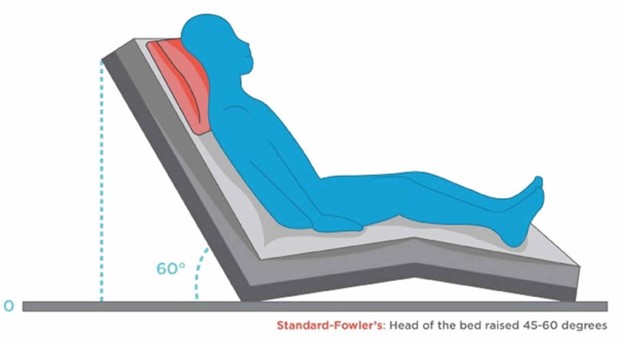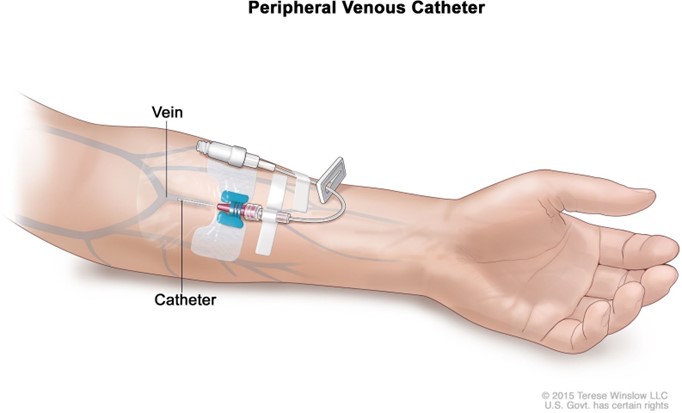A nurse is assessing a client who is receiving a blood transfusion. The nurse notes lung crackles, hypoxia, and distended neck veins. Which of the following actions should the nurse take? (Select all that apply.)
Stop the transfusion.
Place the client in high-Fowler's position.
Administer epinephrine to the client.
Obtain a prescription for a diuretic.
Administer oxygen to the client.
Correct Answer : A,B,D,E
The nurse should stop the transfusion, place the client in high-Fowler's position, obtain a prescription for a diuretic, and administer oxygen to the client. These actions can help manage the symptoms of transfusion- associated circulatory overload (TACO), which can occur when a client receives too much fluid too quickly during a blood transfusion.
c. Administering epinephrine is not an appropriate action for managing TACO. Epinephrine is used to treat anaphylaxis, which is a different type of transfusion reaction.

Nursing Test Bank
Naxlex Comprehensive Predictor Exams
Related Questions
Correct Answer is A
Explanation
The correct answer is that the nurse should dangle the client's arm over the edge of the bed to help dilate the vein. This technique uses gravity to increase blood flow to the arm and dilate the veins, making it easier to insert a peripheral IV catheter.
Options b, c and d are not effective techniques for dilating a vein for IV insertion. Stroking the skin near the vein in an upward direction, instructing the client to flex their arm with the hand open and applying a cool compress to the vein for 10 min are not effective methods for dilating a vein.

Correct Answer is D, B, A, C
Explanation
When caring for a client who is nauseated and unable to eat after taking an antibiotic, the nurse should first identify possible nursing interventions that address the client's nausea. The nurse should then review the potential benefits and consequences of each intervention. The nurse should determine the probability of intervention-related complications. Finally, the nurse should select an intervention that provides the greatest benefit and least risk to the client.
Whether you are a student looking to ace your exams or a practicing nurse seeking to enhance your expertise , our nursing education contents will empower you with the confidence and competence to make a difference in the lives of patients and become a respected leader in the healthcare field.
Visit Naxlex, invest in your future and unlock endless possibilities with our unparalleled nursing education contents today
Report Wrong Answer on the Current Question
Do you disagree with the answer? If yes, what is your expected answer? Explain.
Kindly be descriptive with the issue you are facing.
